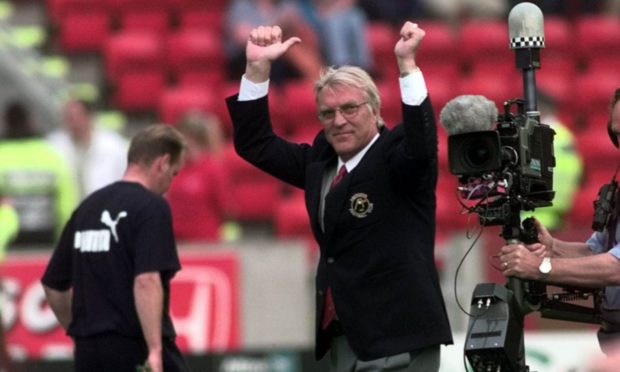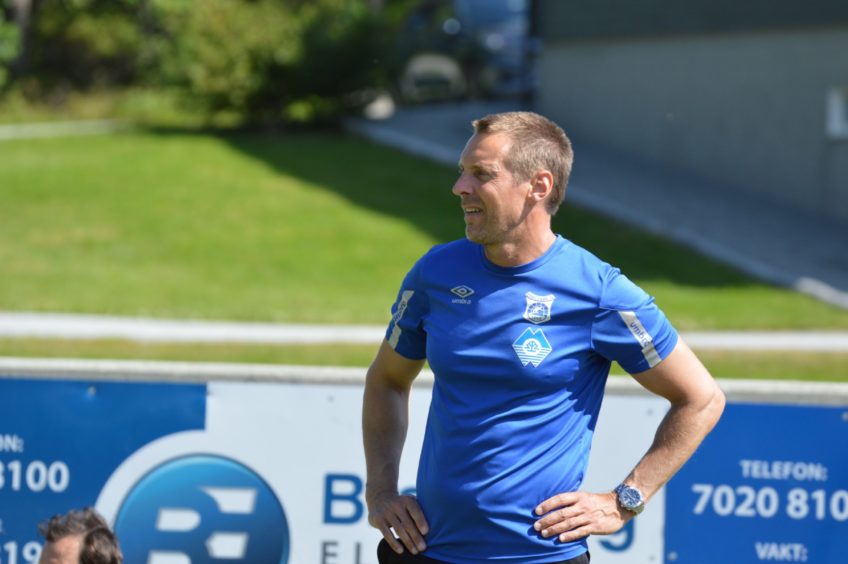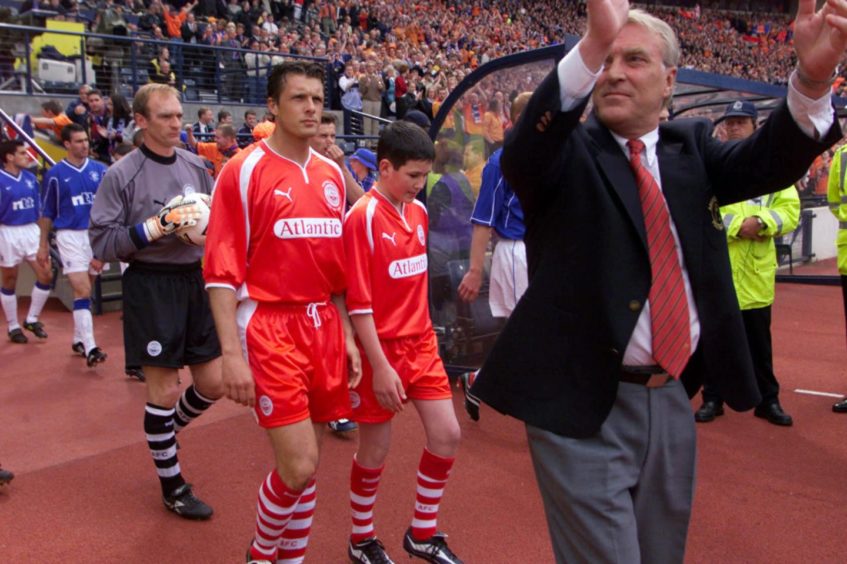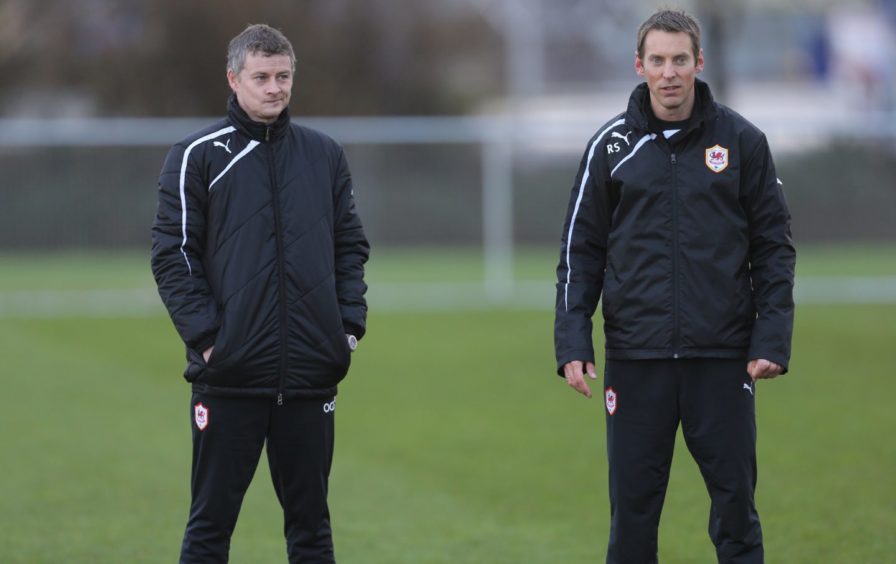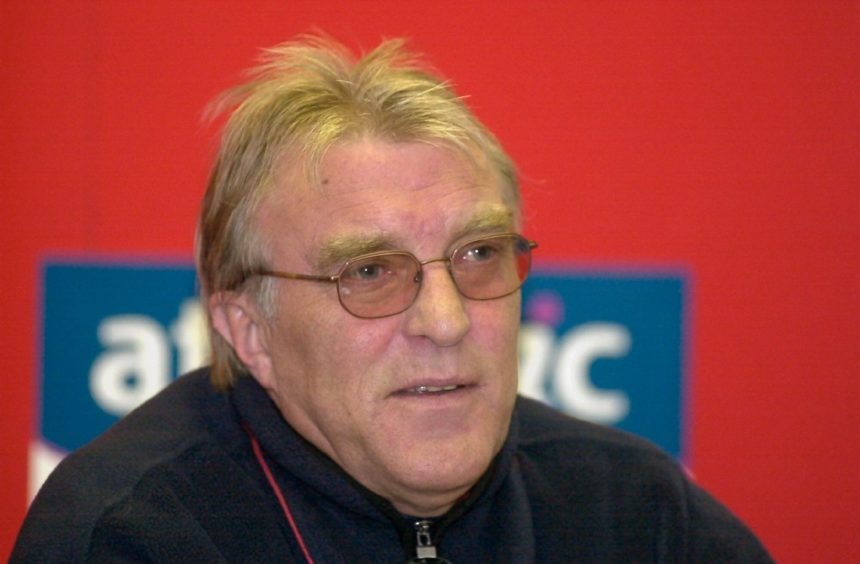Rene Skovdahl signs off the call with thanks, for giving him the time to talk about his father.
Such are the stresses of life just now, in addition to being the manager of a small football club in Norway, that taking time out to reflect can be rare.
The name Ebbe Skovdahl is synonymous with Aberdeen in the early 2000s; a new frontier of overseas imports and fluctuating fortunes at Pittodrie, which ranged from Premiership struggles to cup finals and qualifying for Europe.
His passing last October at the age of 75 allowed plenty of Dons fans to reminisce about the highs and lows of that era. Everyone had a favourite ‘Skovism‘ – a memorable quote from the great man which stands out.
But to his son Rene, who followed him down a similar career path, his absence is understandably more real.
“That was really tough. I’ve been very close with my dad – both my brother and I had a very good relationship with our dad,” he said. “He’s had a tremendous influence on our upbringing and who we are as people.
“My dad has had a tremendous impact on my life, not just as a human being but as a football coach as well. He’s the one I’ve been closest to.
“Him passing away in the middle of the season, the best season this club I’m at has had, was a big anti-climax.
“You get hundreds of text messages and you try to answer all of them. At the same time as you’re in grief yourself. It was a very tough time for me personally.
The Covid-19 pandemic meant he was not able to travel back to Denmark to say his goodbyes; they had to be done over the phone.
“I was not able to go back and be with him. None of us knew it was as bad as it was and it would happen as quickly as it did.
“I wasn’t able to go back and forth, as I would have to go into quarantine for 10 days in Denmark and Norway, so that’s three weeks. You can’t take time out in the middle of the football season.
“He understood that. He said ‘don’t you f****** come home in the middle of the season. You do your job – you don’t leave your team in the middle of the season’.
“We went back for the funeral but I would have liked to have seen him one last time, just to say goodbye. It had to happen over FaceTime and it’s not the same.”
Skovdahl senior had a transformative effect on Brondby. His third spell in charge of the club started in 1992 in dire financial straits, with debts running into the hundreds of millions.
However, the rebuilding job eventually brought them three Danish Superliga titles between 1996 and 1998, as well as Champions League qualification. They were drawn against Manchester United, Barcelona and Bayern Munich – beating the German side 2-1 – in their first foray in the rebranded competition.
His switch to the Granite City in 1999 was a shift from the norm, being the club’s first and only overseas coach, and the first campaign saw the Dons finish bottom despite reaching two cup finals.
The next two years brought gradual improvement, culminating in a fourth-placed finish in 2002 which guaranteed Uefa Cup football at Pittodrie.
Skovdahl left later that year but is still revered as one of the most important coaches in Danish football, a respect reflected by the turnout at his funeral.
“One of his friends pulled me aside and said ‘your dad has had a funeral close to what a Prime Minister of Denmark would get, without him being a politician’. There were so many people that showed him the last bit of respect.
“At Brondby I was always known as Ebbe’s son, instead of Rene. You want to have your own identity but you come to realise that there’s a lot of respect and fondness behind people talking about you that way.”
Rene’s career in football is not too shabby either. He is currently head coach of Norwegian second-tier side Brattvag IL and has worked alongside some of the game’s biggest names.
He worked as a fitness coach for Ole Gunnar Solskjaer at Molde and Cardiff City, in a similar role at Brondby alongside his cousin Michael Laudrup, as well as being assistant manager to Rene Meulensteen at Maccabi Haifa.
It was his time at Cardiff where he crossed paths with ex-Don Kevin McNaughton, who had some uplifting words to say about Skovdahl.
“He told me my dad was the one who took him up from the under-19s to the first-team and gave him his debut. He gave him the chance to be part of the senior team. He was really grateful.
“He’s the only person from Aberdeen I have worked with. Even though it was 10 years after his time with Aberdeen, he was very positive about my dad and what he tried to do.
“My dad was a carpenter and he taught me football is craft. It’s not art. As a coach, you need to know your craft. It’s a craft to build your team, your staff, to create your style of play. Football is hard work, not art.”
Rene continues to move forward with his own life but his father’s influence is a constant presence. Most of his family remain in Denmark but in the small village he lives with his Norwegian partner, he allows himself some time to remember.
“At the beginning you feel grief and sorrow. After a while, that sorrow turns into just missing that person so much. There’s a great Danish word for it – in the beginning you feel sorg. You’re heartbroken. As time goes by, you know you’re never going to be able to talk to that person again, you’re never going to hear his voice or his laugh.
“You’ll miss that bit you’ll never have again. It’s really tough to understand and to cope with. Some days it’s fine but sometimes it’s difficult to cope with.”
